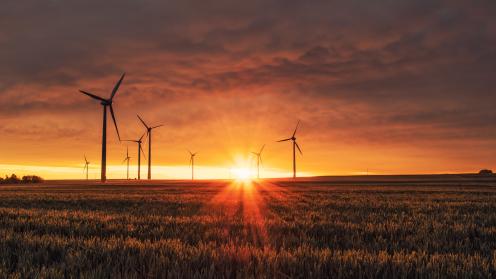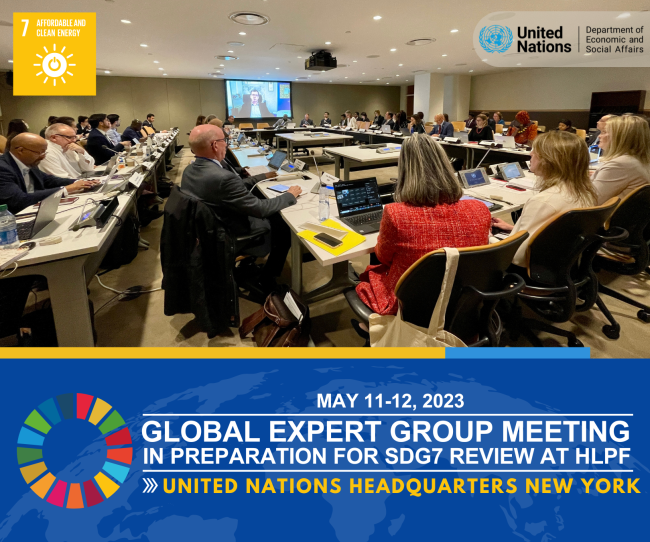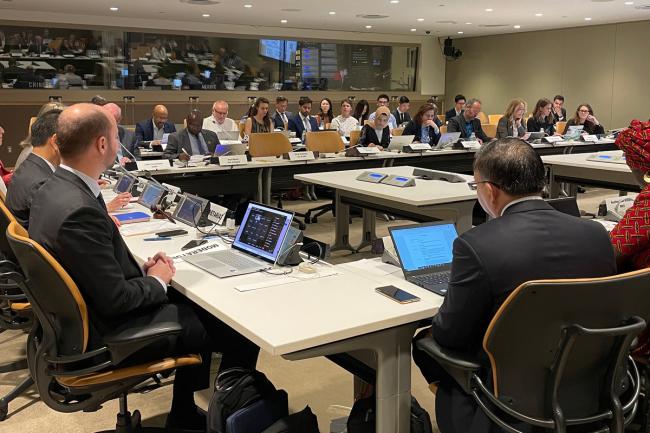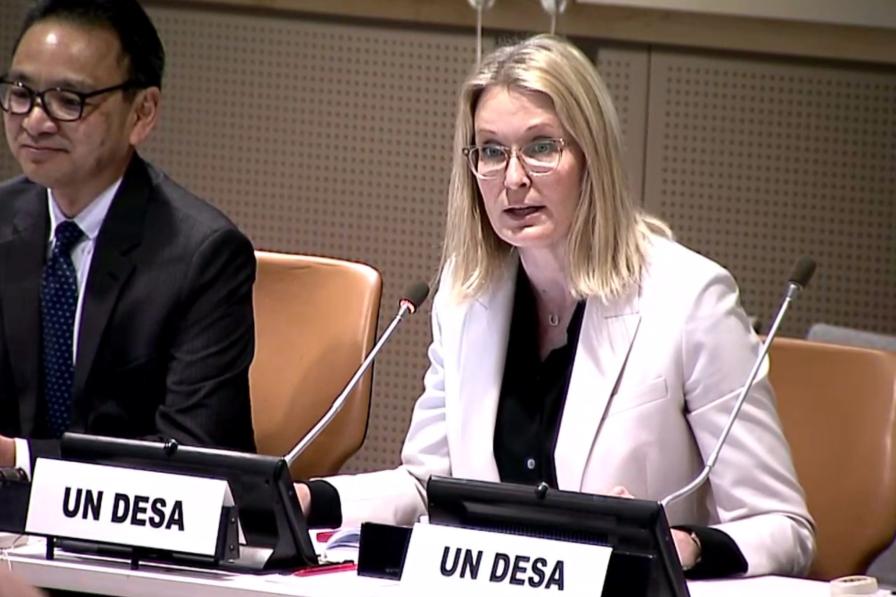The Global Expert Group Meeting in preparation of the SDG 7 review at the High-level Political Forum (HLPF) 2023 opened on Thursday morning with remarks by Lotta Tähtinen, Chief, Outreach and Partnerships Branch, United Nations Department of Economic and Social Affairs (UN DESA). She underlined that Sustainable Development Goal (SDG) 7 (affordable and clean energy) is connected to the entire 2030 Agenda for Sustainable Development and the success of other SDGs depends on progress made on SDG 7.
Tähtinen further noted that achieving SDG 7 also depends on achieving the other SDGs being reviewed at the HLPF 2023, that is, SDG 6 on clean water and sanitation, SDG 9 on industry, innovation and infrastructure, SDG 11 on sustainable cities and communities, and SDG 17 on partnerships for the Goals. She invited the meeting to consider synergies between the SDGs in order to minimize trade-offs.
Heather Adair-Rohani, Acting Head, Air Quality, Energy, and Health, World Health Organization (WHO), presented an overview of progress on SDG 7 as chair of this year’s edition of Tracking SDG 7: The Energy Progress Report. She noted some progress, although slow, in areas such as electrification and clean cooking, underlining for instance, that the share of the global population with electricity access rose to 91% in 2020, increasing the number of people with access by 1.3 billion globally. However, Adair-Rohani lamented regression in other areas, particularly in improving energy efficiency, with progress in improving energy intensity slowing to 0.6% in 2020, down from an average of 1.8% over the decade.
Experts then engaged in two interactive discussion sessions. The first session, titled “Where do we stand on SDG7? Opportunities and Challenges,” was moderated by Minoru Takada, Team Leader for Energy and Climate, UN DESA. Experts called for a focus on areas where the economics are failing, such as clean cooking and demand-side electricity. They discussed the possibility of using the finance available for electricity access to improve access to clean electric cooking as a way of exploiting the crossover between the two targets. Several also highlighted synergies between climate and energy action, and between the housing and energy sectors, calling for “breaking silos” including in relation to finance.
On finance, experts called for increased financial flows to the least developed countries (LDCs) and small island developing States (SIDS). One urged empowering Africa’s private sector and leveraging local capital to increase investment in the region.
The second interactive discussion considered “How can we achieve SDG 7? Mobilizing partnerships and taking action,” and was moderated by Sheila Oparaocha, Executive Director, ENERGIA. Experts focused on practical ways forward, with one underlining the importance of concessional resources for the energy transition. He suggested that a portion of available climate finance should focus on achieving SDG 7, given its impact on climate action.
Experts also called for:
- mobilizing domestic resources, engaging local financing institutions, and deploying diverse instruments;
- considering not only domestic uses of electricity, but also “productive” uses such as agriculture and commerce;
- engaging diverse actors, such as academics and scientists, who have valuable data that can support energy transition efforts; and
- increasing education and public awareness, noting early education is vital to promoting a sustainable future.
The meeting will continue tomorrow with a focus on recommendations to be taken forward to HLPF 2023.
To receive free coverage of global environmental events delivered to your inbox, subscribe to the ENB Update newsletter.


























